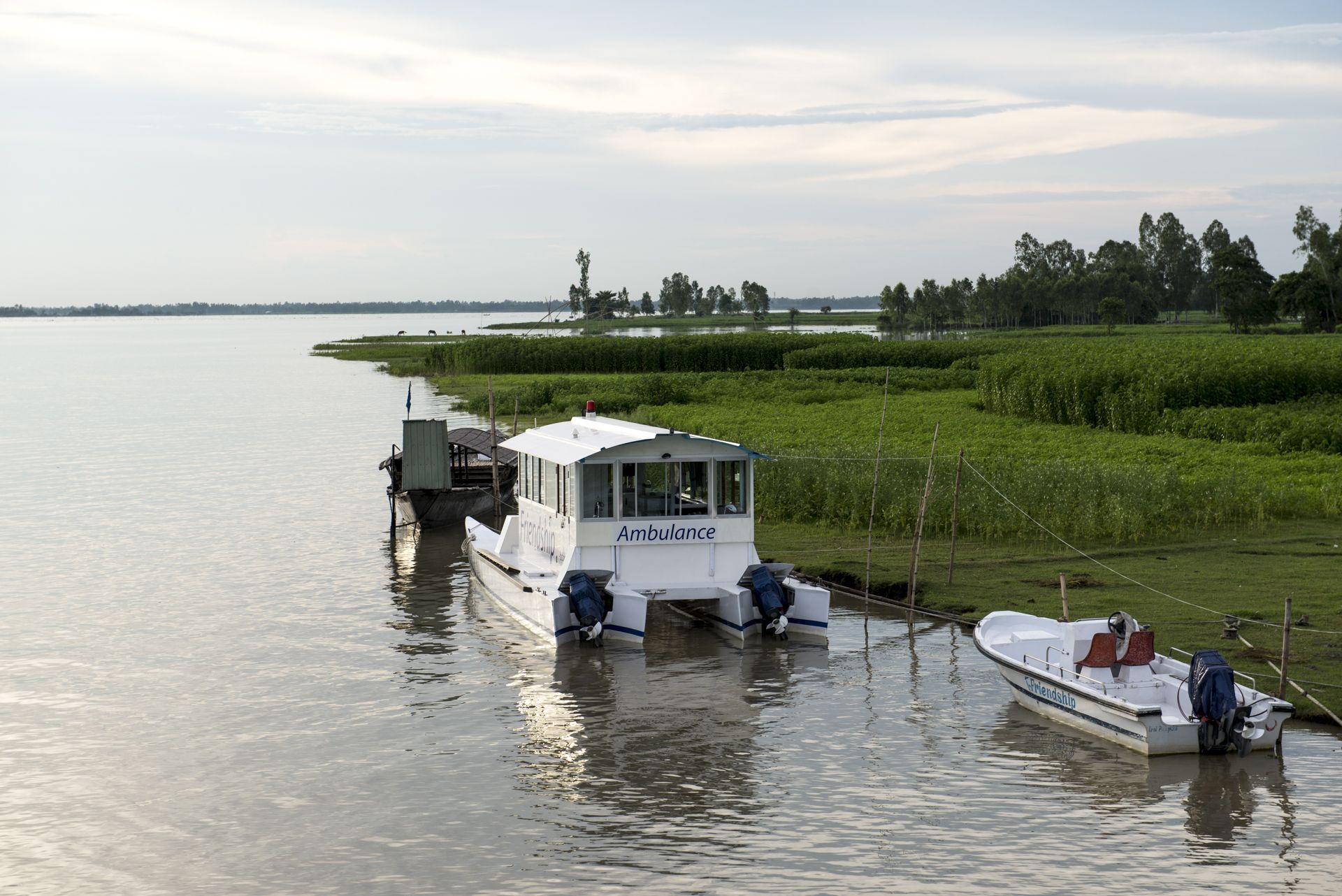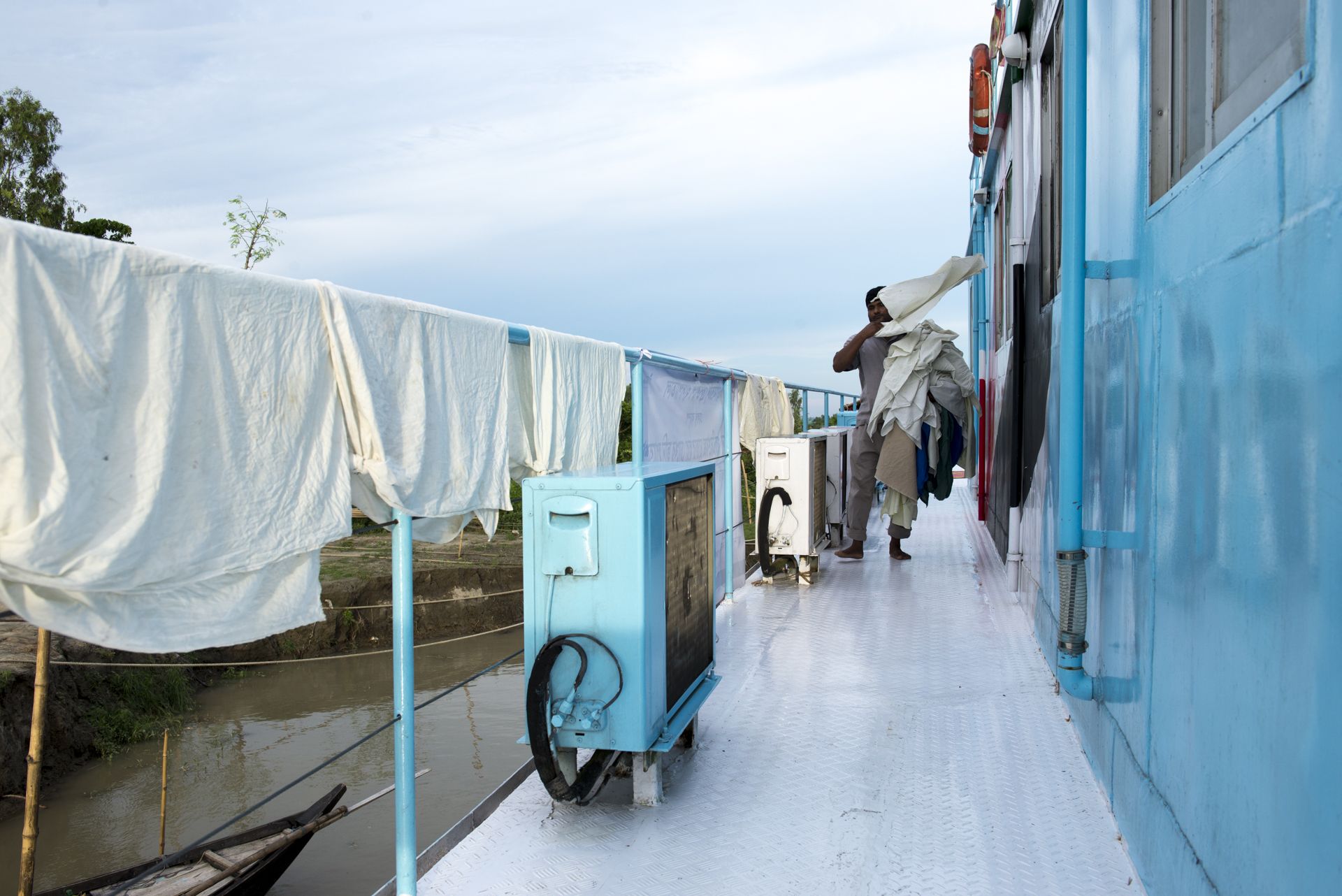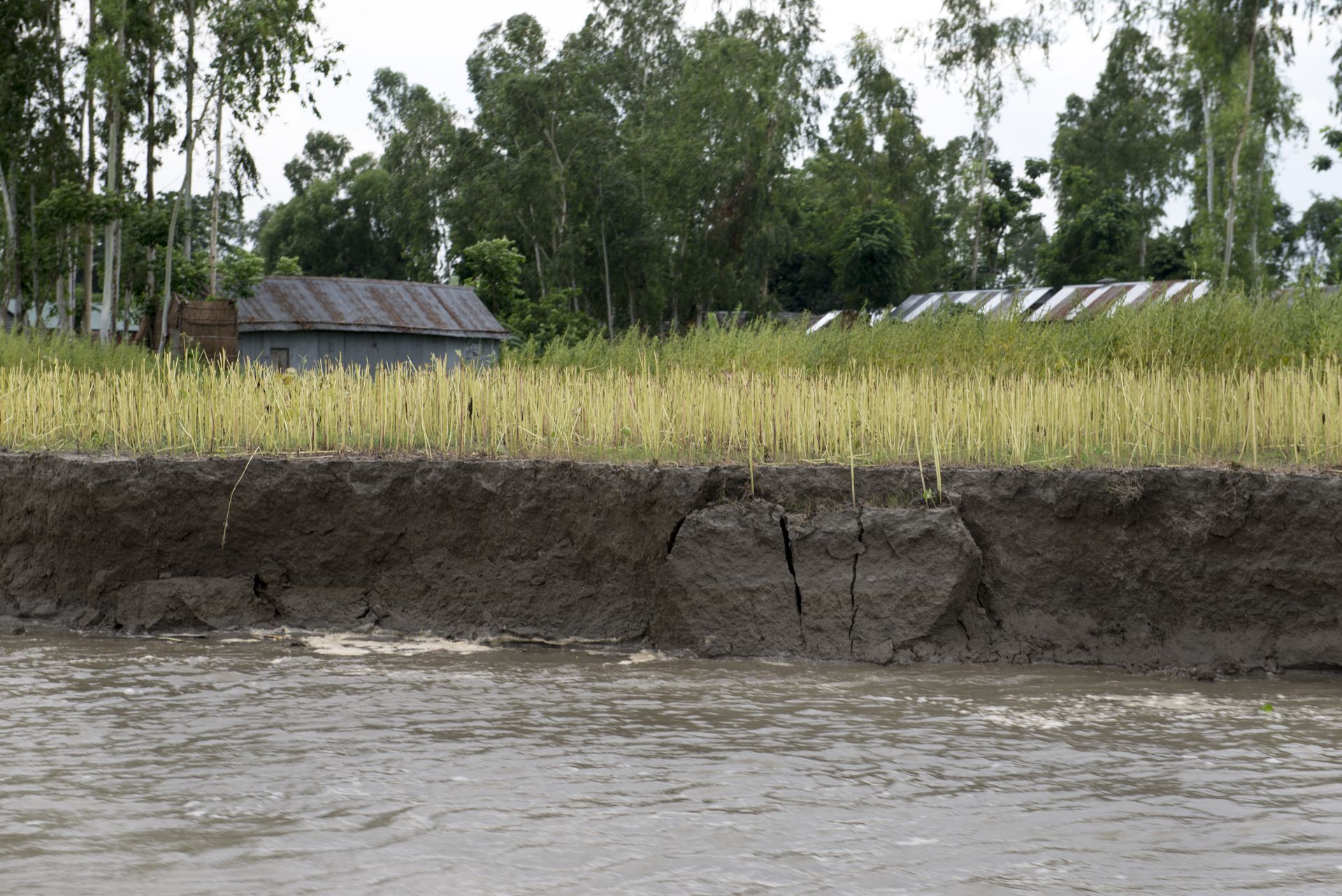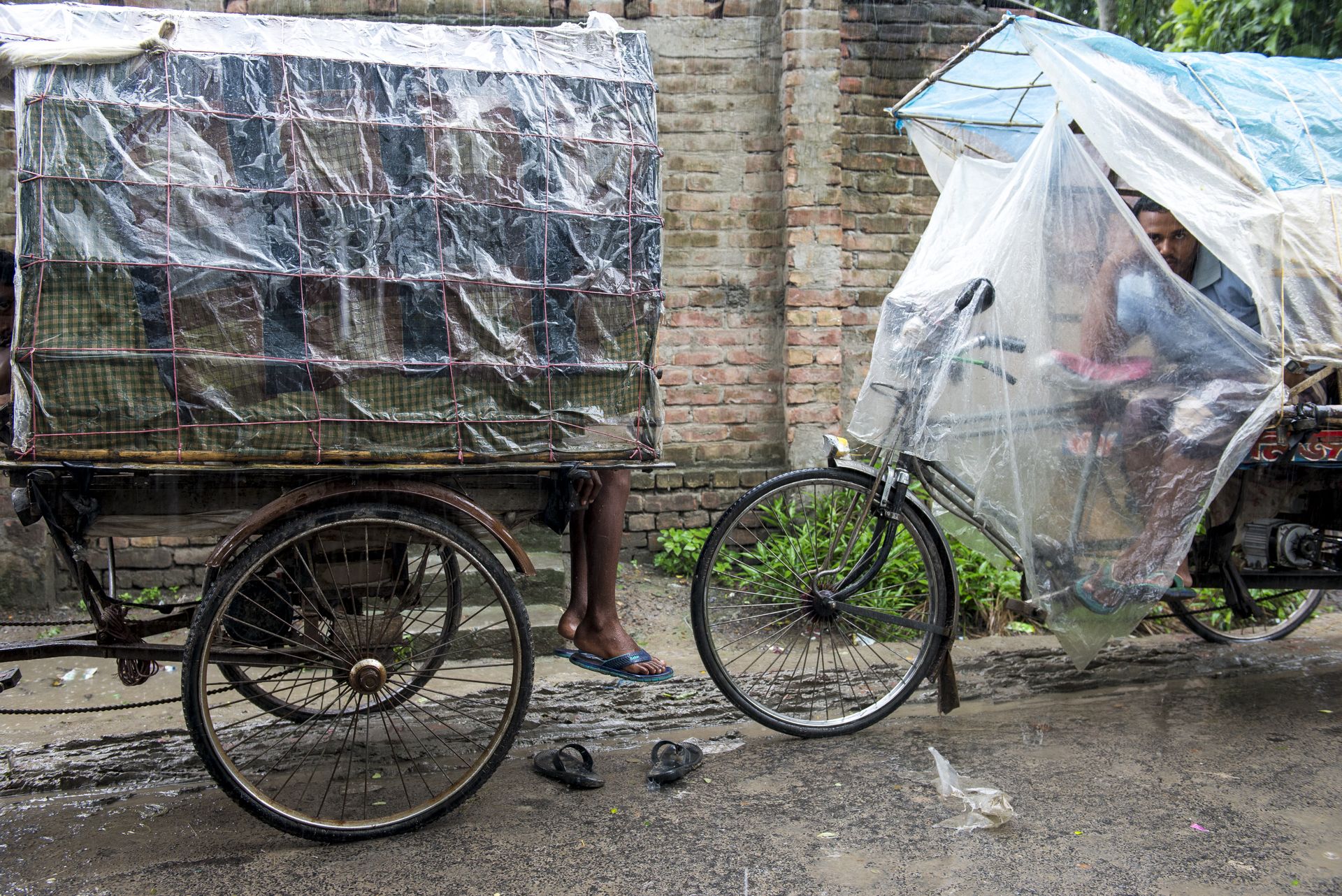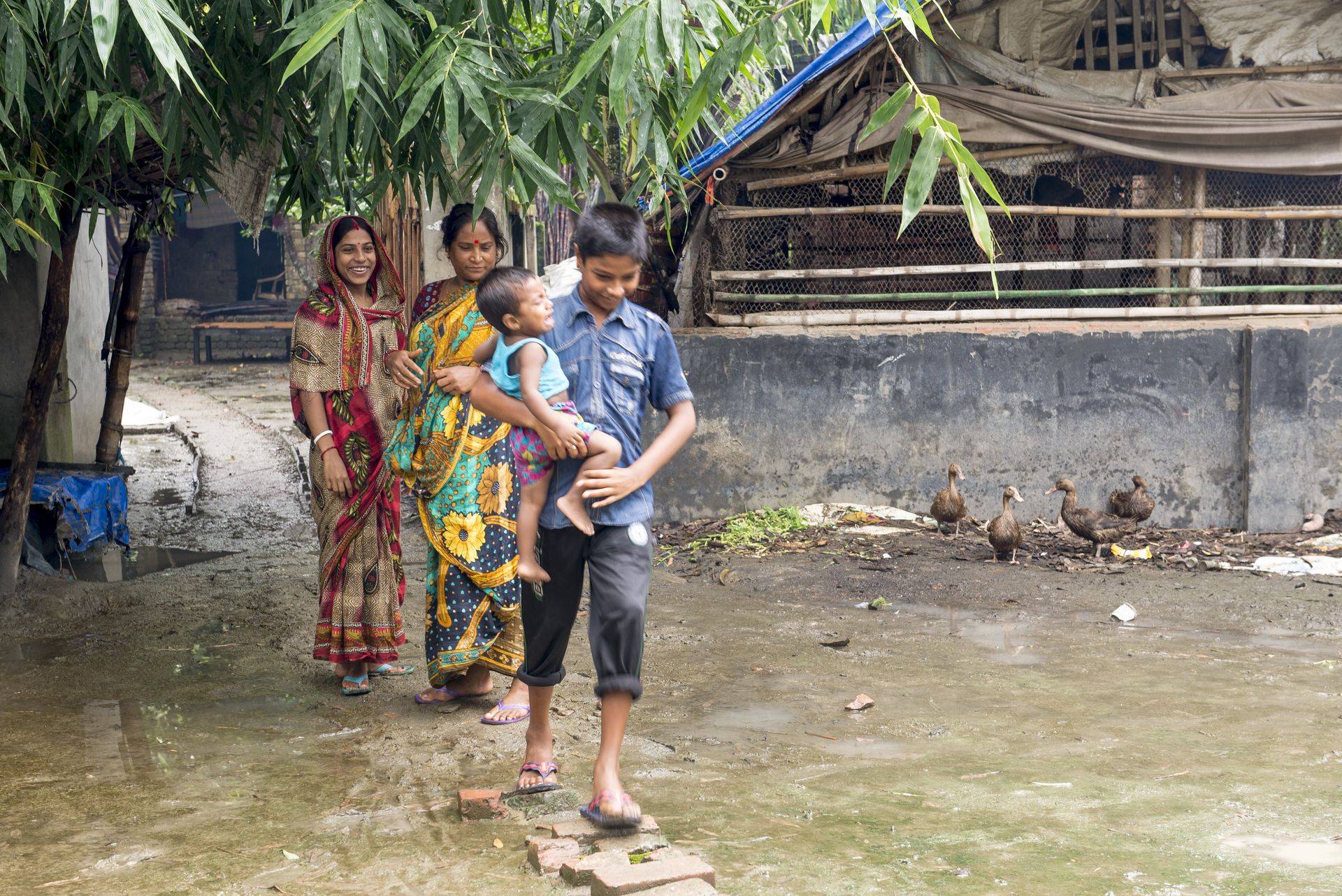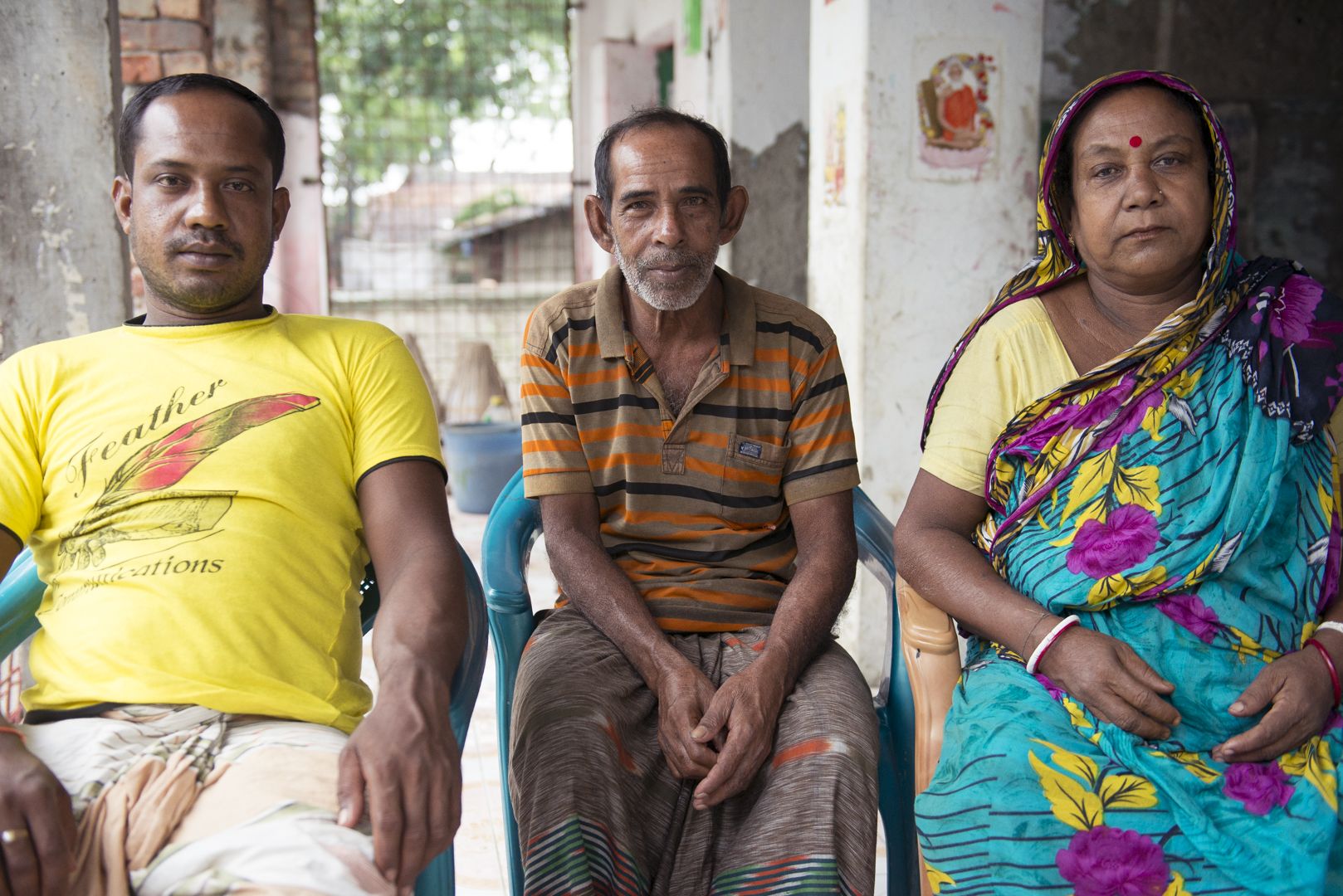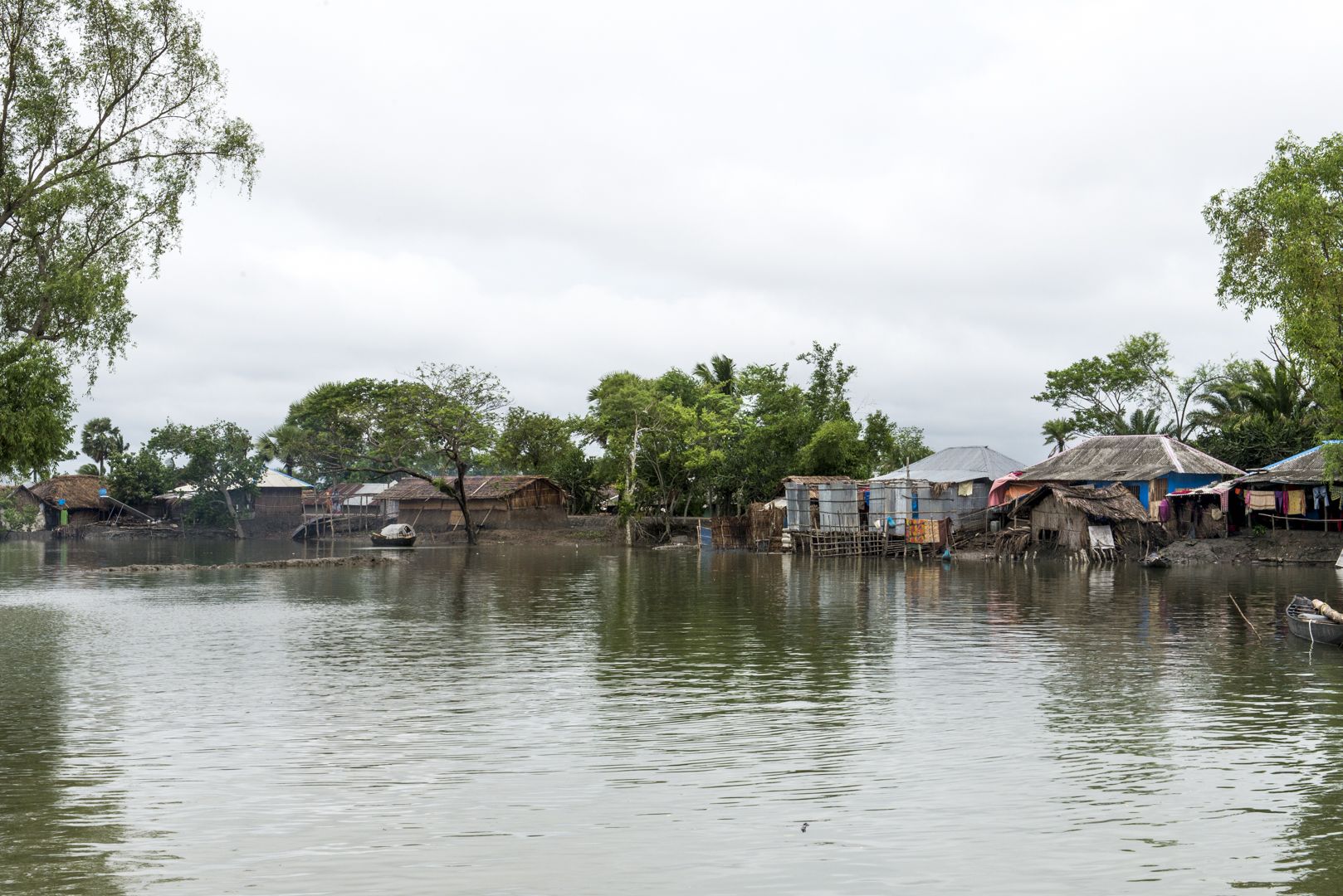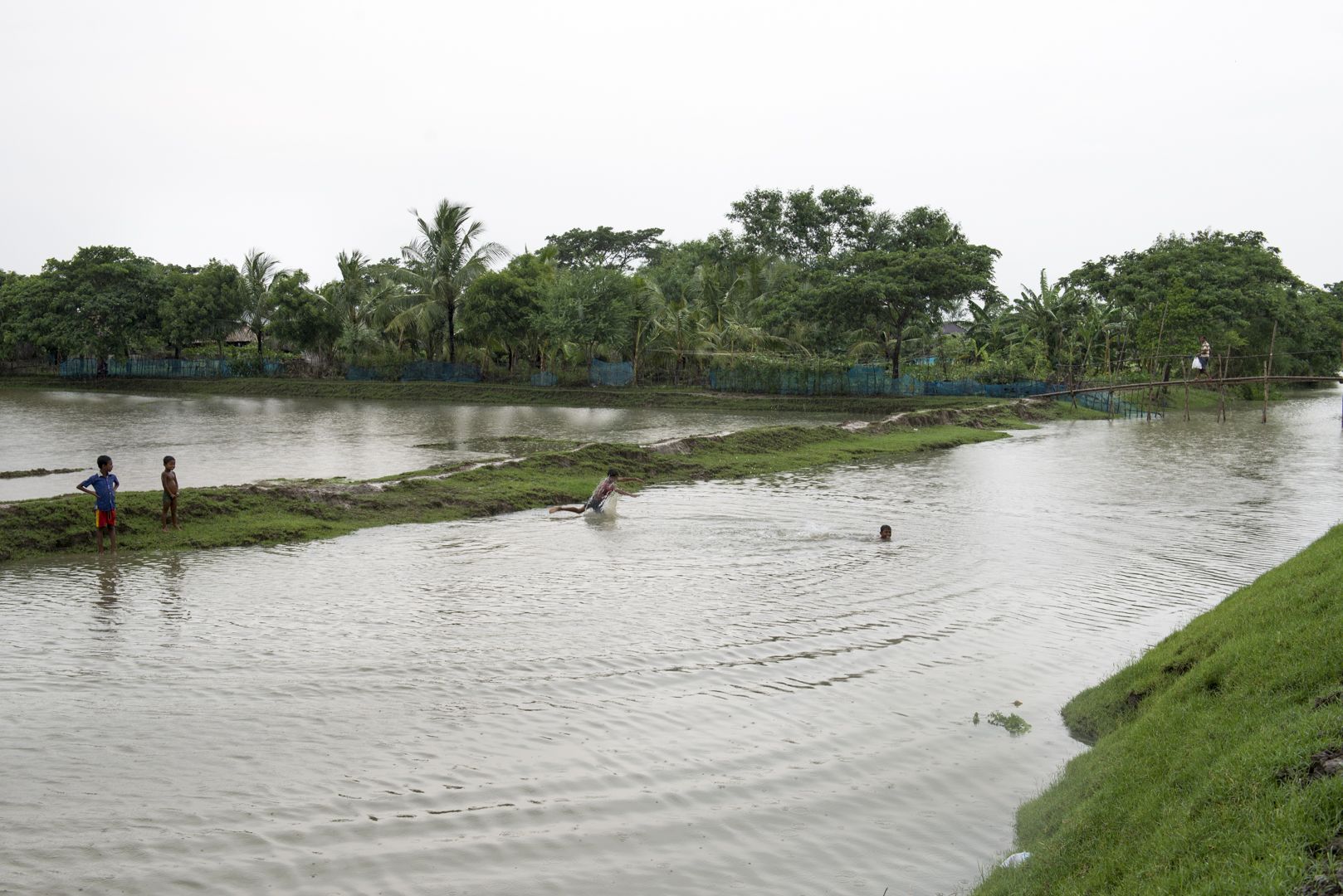The mighty Brahmaputra that flows into Bangladesh from the Himalayas is home to a number of chars or silt islands that form and disintegrate over the span of a few years. Farmers and fishermen who live on the chars rely on the fertility of the land for their living. When a char breaks, they pack up and move to the next one. Floating hospitals run by the Friendship NGO bring primary and secondary healthcare to the people in the northern districts of Gaibandha and Kurigram.
In the cyclone-prone southwestern coastal Khulna district of Bangladesh, pools of drinking water have tuned saline. Climate change has made the cyclones more intense over the years. Building cyclone shelters and creating an alarm system to warn people of imminent storms have helped save lives. At the same time salinity in the water has led to hyper-tension and pre-eclampsia in pregnant women.


